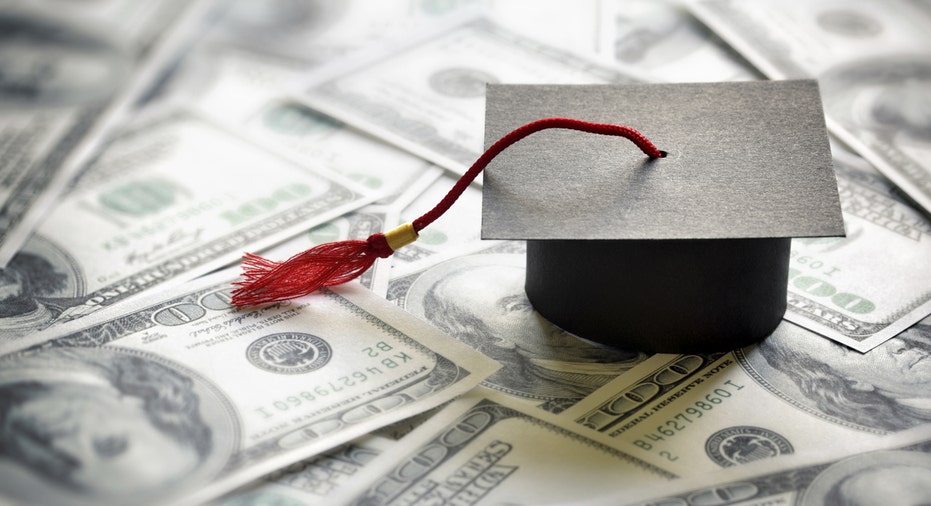Could the $1.3T of College Debt Spark the Next Financial Crisis?

As President Trump addresses Congress over tax reform and defense spending in a joint session Tuesday night, one agenda that might not be covered could very well spark the next financial crisis: student loan debt default.
According to the New York Federal Reserve, U.S. student loan debt has soared to $1.3 trillion becoming the second highest consumer debt category, more than both credit cards and auto loans.
In an exclusive interview with FOX Business’ Liz Claman, Washington College President and former Federal Deposit Insurance Corporation (FDIC) Chair Sheila Bair said the student loan debt crisis could spark next financial crisis, since it is a “tremendous drag” on the U.S. economy.
During the financial crisis of 2008–09, excessive mortgage debt collapsed consumer spending as more families opted to pay off debt. Bair said the same dynamic could be seen if the student debt bubble bursts.
“With so many student borrowers, even after they graduate, being burden with debt, they are not spending money on other things,” Bair said.
The former FDIC chair said the massive defaults will primarily hit the fiscal balance sheet of the government since most of the student loans are guaranteed by tax payers.
During the presidential campaign, then-candidate Donald Trump said, “This debt should not be an albatross around their necks for the rest of their lives. It’s not fair and we are going to fix it!”
Bair said student loan debt is thwarting the creation of small businesses and affecting job growth as college graduates opt for safe corporate jobs to pay back the loans.
“I think President Trump has said some amazingly positive things on this: simplifications, making sure payments are affordable, having there be some end points for these obligations. I think those are all positive things and I am hoping he says something tonight,” she said.
On Tuesday, President Trump signed an executive order that will transfer the federal initiative on Historically Black Colleges and Universities (HBCUs) from the Department of Education into the White House Domestic Policy Council. The administration aims to boost government support for HBCUs.
“Historically black colleges and universities are incredibly important institutions woven into the fabric of our history. They have played such an important role in achieving progress for African Americans and in our nation’s march for justice,” Trump said.
Bair said student loan defaults among minority students is higher because many went to for-profit colleges which did not provide them with an adequate degree.
“Distressed populations typically will have higher default rates because they’re first generation, they are more at risk. They don’t have families to support them who understand what is like to go to college to provide that support,” she said.



















